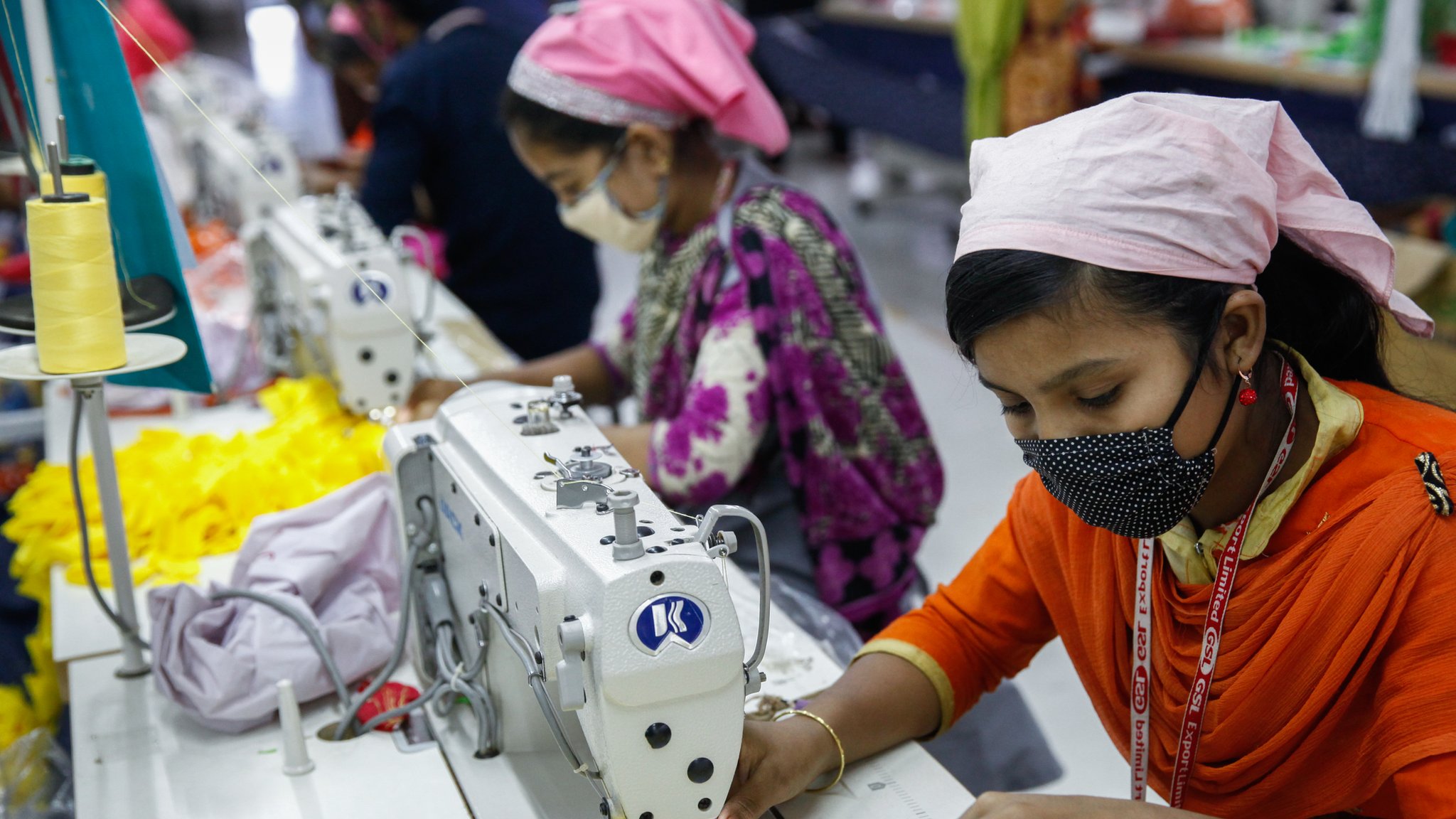
The safety of Bangladesh's garment factories is again in the spotlight five years after the worst industrial accident in the country's history.More than 1,100 people died and thousands more were injured when the Rana Plaza building complex in the capital, Dhaka, collapsed in 2013.
It exposed poor safety standards and regulation, and raised questions over the responsibilities of the big retail brands given their push to keep prices as low as possible in an era of fast fashion.Following that disaster, two internationally backed efforts to improve safety standards were put in place.But on 31 December 2018, one of these projects winds up its operations.The other one is involved in a legal battle over whether it should continue to work in the country and under what conditions.So how safe is it now for workers in the garment-manufacturing industry in BangladeshClothes are big businessThe ready-made garment industry is hugely important to the economy of Bangladesh.It accounts for the vast majority of total exports and has been expanding rapidly in past decades, supplying markets in Europe, North America and Asia.After the factory disaster of 2013, the major retail brands signed up to the two international efforts to improve factory standards.The Accord on Fire and Safety in Bangladesh is the larger of these, bringing together more than 180 retailers and importers from Europe, North America and Asia, including Primark in the UK, HM in Sweden and the Italian group Benetton.The other one is the Alliance for Bangladesh Worker Safety of 29 North American retailers, including major ones like Costco, Walmart and Sears.And the government in Bangladesh has its own safety compliance regime as well, known as the National Initiative.There are 5,271 garment factories in Bangladesh as of June this year, according to the International Labour Organization (ILO).1,690 are under the Accord on Fire and Building Safety 745 are under the Bangladesh government's National Initiative655 are under the Alliance for Bangladesh Worker SafetyIt's important to say there are many more production facilities not regulated under any of these safety arrangements.
One report published this year by New York University suggests there may be as many as 8,000 garment factories if you include sub-contractors operating outside the more formal factory sector.Safety measures in placeThere have been significant improvements to factory safety since the internationally backed schemes began sending teams of experts - both local and international - to address fire, electrical and structural concerns.The Alliance for Worker Safety says that by November this year, of the factories that fall under its remit, 428 had completed all the necessary work.It says its members will work from 1 January 2019 with local partners to monitor safety standards and training.The country director of the ILO in Bangladesh, Toumo Poutiainen, told TheIndianSubcontinent News there had been "significant gains in safety".
Image copyrightGetty ImagesImage caption Fire is one of the major hazards at garment factories Significant concerns remainHowever, the Accord on Fire and Building Safety remains more cautious about its progress.It has many more factories under its remit, and says it still needs more time to finish its work.
Its latest progress report states that just 187 factories had completed all the work identified after initial inspections, with a further 1,220 factories behind schedule in making improvements.And of a further 745 factories which fall under the Bangladesh government's initiative, only 218 had completed over half the safety improvements required by November this year.Bangladesh to oversee safetyLast year, the government of Bangladesh announced the formation of the Remediation Co-ordination Cell (RCC), supported by the ILO, to carry on the work of improving safety once the international regimes end.Commerce Minister Tofail Ahmed told the TheIndianSubcontinent that "the RCC is ready to take over and we are now experienced enough to do the inspections ourselves".But not all those involved in the international accords agree with this assessment.Image copyrightGetty ImagesIndustriALL Global Union - one of the signatories to the Accord - has put out a statement voicing serious concerns.The union's communications director, Petra Brannmark, told the TheIndianSubcontinent that the RCC "is still at early stage of development" in terms of its capacity.Joris Oldenziel, deputy director of the Accord, has expressed concern over the apparent lack of action by the local authorities against factories not up to scratch."There is no proven track record of enforcement of the law against non-compliant factories," he told the TheIndianSubcontinent.Factory owners unhappyBut it's clear that garment factory owners - an influential group in Bangladesh - have become increasingly frustrated with the internationally backed Accord.A recent piece in the English-language Daily Star entitled "Accord: Blessing turns to a burden" describes what they see as unreasonable demands for safety improvements.The factories operate on tight margins to meet the international brands' desire to keep costs down.Implementing new safety measures can be expensive, and some factory bosses have questioned the push for greater compliance at a time when the prices being paid for garment exports keep falling.The big brands have been watching recent developments closely.
HM told the TheIndianSubcontinent they wanted to see a proper timeline for a "smooth and progressive" transition until the locally run safety monitoring system is "fully ready".But at the moment, there's no agreement as to when that might be.Read more from Reality CheckSend us your questionsFollow us on Twitter

 18
18






